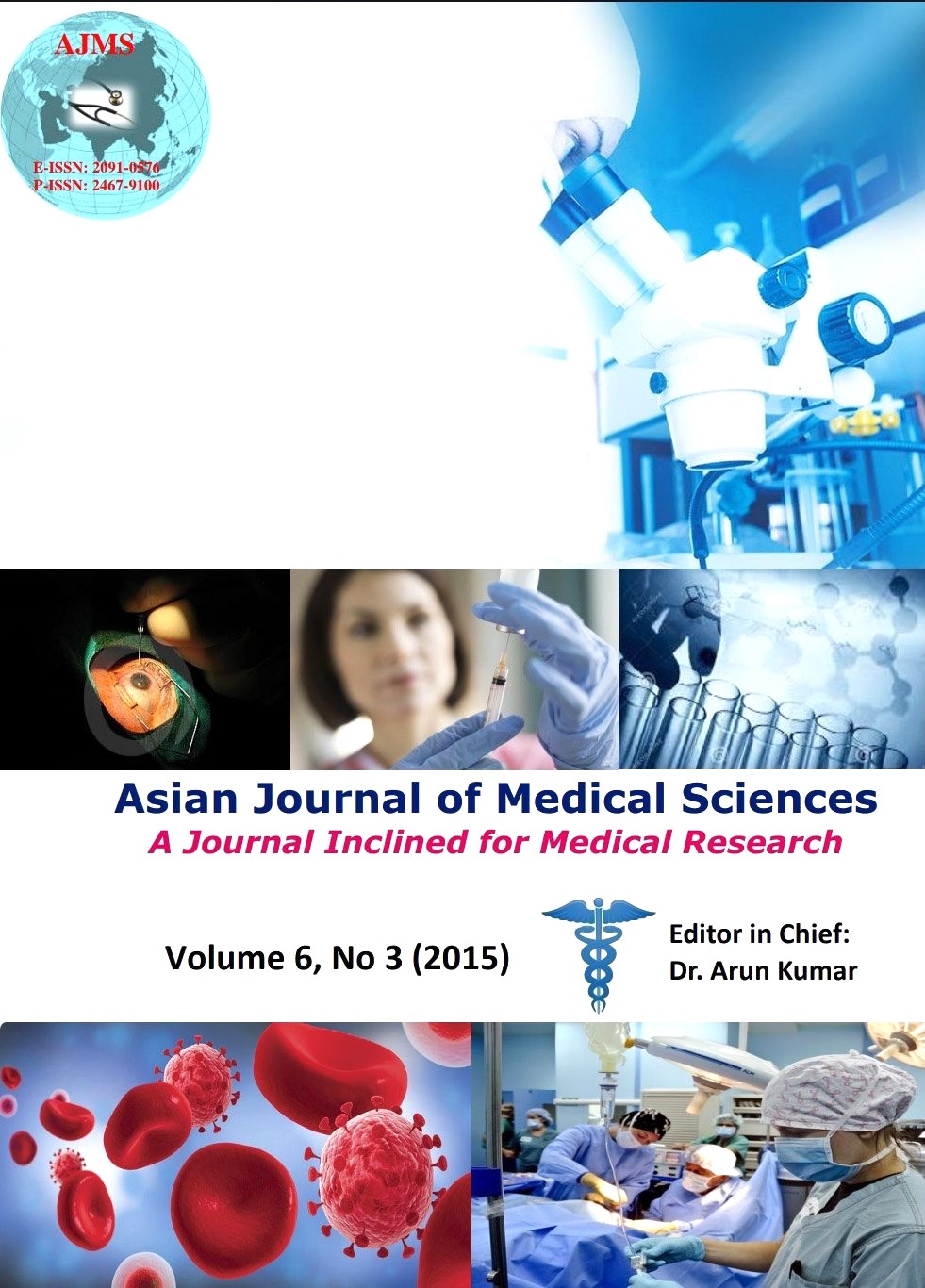Evaluation of thyroid dysfunction among type 2 diabetic patients
Keywords:
Type 2 Diabetes Mellitus, Hyperthyroidism, Hypothyroidism.Abstract
Background: Diabetes mellitus is a very common endocrinal disorders and incidence of thyroid dysfunction also rising in India and world over. Thyroid hormones directly control insulin secretion and insulin clearance. Diabetes also may affect the thyroid function to variable extent first at the level of hypothalamic control of TSH release and second at peripheral tissue by converting T4 to T3.
Aims and Objectives: The present study was carried out aiming to evaluate thyroid dysfunction among type 2 diabetes mellitus patients.
Material and Methods: Study included total 80 subjects. Thyroid dysfunction was evaluated by investigating the subjects for Total tri-iodo-thyronine (T3), Total thyroxine (T4) and thyroid stimulating hormone (TSH). Plasma glucose was estimated by- GOD-POD method and Thyroid profile was estimated by- CLIA (chemiluminescence immunoassay) system. Statistical analysis was performed using software statistical package for social sciences (SPSS) version 20, unpaired T test, Pearson’s correlation.
Results: In type 2 diabetic patients the prevalence of hypothyroidism and subclinical hypothyroidism was found to be 4(10.00%) and 6(15.00%) respectively, while the prevalence of subclinical hyperthyroidism and hyperthyroidism was found to be 0(0.0%) and 1(2.5%) respectively. In non diabetic healthy subjects the prevalence of hypothyroidism and subclinical hypothyroidism was found to be 1(2.5%) and 3(7.5%) respectively while the prevalence of subclinical hyperthyroidism and hyperthyroidism was found to be 0(0.0%) and 0(0.0%) respectively.
Conclusion: The prevalence of thyroid dysfunction was found to be higher in type 2 diabetes mellitus subjects as compared to non-diabetic subjects.
DOI: http://dx.doi.org/10.3126/ajms.v6i3.10814
Asian Journal of Medical Sciences Vol.6(3) 2015 33-37
Downloads
Downloads
Published
How to Cite
Issue
Section
License
Authors who publish with this journal agree to the following terms:
- The journal holds copyright and publishes the work under a Creative Commons CC-BY-NC license that permits use, distribution and reprduction in any medium, provided the original work is properly cited and is not used for commercial purposes. The journal should be recognised as the original publisher of this work.
- Authors are able to enter into separate, additional contractual arrangements for the non-exclusive distribution of the journal's published version of the work (e.g., post it to an institutional repository or publish it in a book), with an acknowledgement of its initial publication in this journal.
- Authors are permitted and encouraged to post their work online (e.g., in institutional repositories or on their website) prior to and during the submission process, as it can lead to productive exchanges, as well as earlier and greater citation of published work (See The Effect of Open Access).




